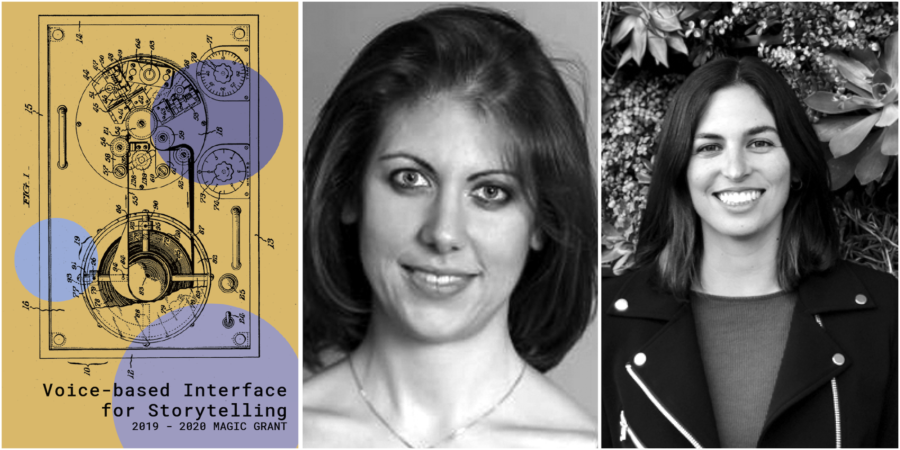Among the projects funded as 2019-20 Magic Grants is a novel technology for teaching “computational thinking.” With their grant, Griffin Dietz and Elizabeth Murnane, computer scientists based in Stanford, are producing A Voice Based Interface for Storytelling and Programming in Early Elementary Years — a voice assistant-style application that teaches elementary school students the basics of computation, simply by teaching them how to tell stories.
The team is taking cues from the K-12 Computer Science Framework, which acts as a guide for introducing students in different age groups to important programming principles, transforming a computational concept like a “variable,” which is not often taught outside a math classroom, into the specifics of a story. For example, a “variable” might be the city where the story takes place or the age of the main character. And then, the app invites students to describe what happens to the story if we change the value of these “variables” — What happens if we make the main character ten years older, or stage the story in a different city? The team has taken computational fundamentals like “looping,” “events,” and “conditional execution,” and translate them into story structure. It is an incredibly clever approach.
According to Dietz and Murnane, the voice assistant will mention the programming concept that the student is meant to be learning by name, without dwelling on terminology. “We try and introduce these concepts in a way that they can hopefully transfer to other domains. Transfer, of course, being this holy grail of education research,” says Dietz. “How do you teach something that kids can then use in other contexts in other areas?” It is also the hallmark motivation behind “computational thinking.”
The multidisciplinary approach to education is a good representation of the interdisciplinary thinking that the Magic Grant program is meant to facilitate. Are you interested in new forms of storytelling, or new uses for journalistic practice and storytelling generally, consider applying for a 2020-21 Magic Grant. Read about the proposal process on our web site — applications are due April 10.
Since its inception, the Brown Institute has funded over 150 people across more than 50 projects. It has has funded the creation of data sets and new database technologies to support journalism (Data Share, Democracy Fighters), editing tools that simplify audio and video production (RoughCut, Synthesizing Novel Video from GANS), and significant stories exploring new modes of expression through data visualization and immersion (We Can, 1000Cut). Read more about our projects on our web site browninstitute.org.

